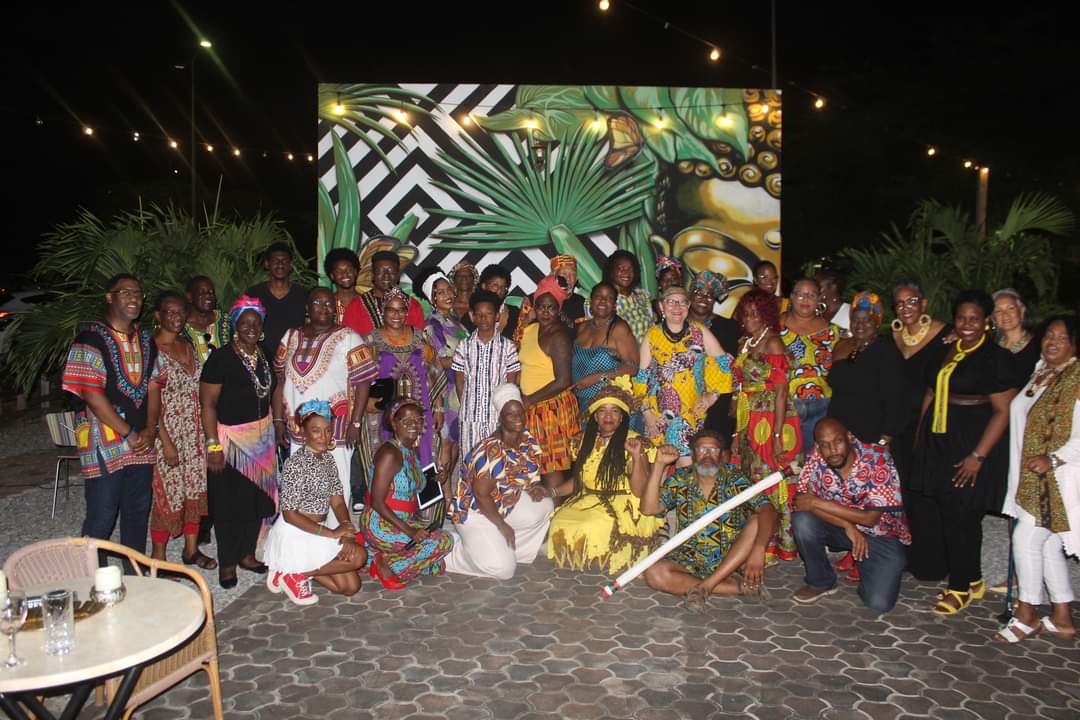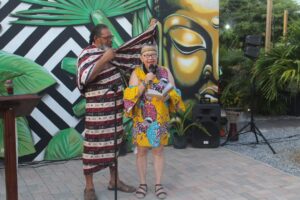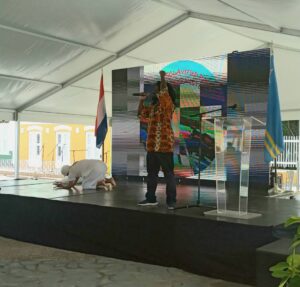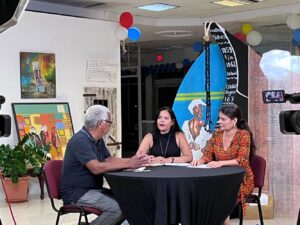
Aruba is rediscovering its unique slavery past
6 July 2023 | Melissa Stamper
Historian Adi Martis says that for a long time Arubans did not want to know whether they descended from enslaved people or from slave owners. “When people talk about it, they act like conditions in Suriname or Curaçao or America,” says the historian, but that’s not true. “It’s completely different here.”
Compared to Curacao, Bonaire, or Sint Eustatius, the enslaved population in Aruba was relatively small. The composition and conditions of slaves varied. “That also makes it unique,” Martis explains.
In his podcast series, ‘Arubaan Roots: The Hidden Slavery Past’, Martis says he has been collecting information on Aruba’s history since the 1950s and delving into the archives.
“I’m always irritated by what the Dutch, but Arubans, wrote about the history of Aruba. For example, it was said that there was no slavery in Aruba, that’s just nonsense,” said the historian.
African roots
In the podcast, Martis refers to the African roots of various Aruban traditions, such as Dante music and the Papiamento language. After the first chapter, reactions are separated.
Shock, denial and joy pass through criticism. There are those who say ‘So happy to have Aruba’s history told’ and ‘so much learned’.
But statements like ‘stories run in families, but it should be a family event’ and ‘Arubans should take a DNA test’ are also part of the online debate.
‘New Puzzle Pieces’
The colonial past has now been digitized at the National Archives of Aruba (ANA) and ‘new pieces of the puzzle’ have been added, making Arubans’ past more searchable, explains Eric Croce of the National Archives.
The archive also put emancipation records online a day before commemorating 160 years since the abolition of slavery. On July 1, the ANA received a portion of the archives’ inventory from 1828 to 1845.
ForgivenessOn July 1, King Willem-Alexander apologized in a speech. It was well received in Aruba. There were also questions as to why the names of the islands were not mentioned in the King’s speech. “Compared to Rudd’s apologies, we noticed that he didn’t mention the islands in his speech. We wonder why,” says Gisele Sint Jakob, who attended the ceremony and protested during a royal visit to the islands last January. Culture Minister Xiomara Maduro says she is a little surprised by the King’s apology, but endorses the prime minister’s words that ‘a sincere apology is always welcome’. For Sonny Richardson, co-founder of the We Culture Foundation, King’s apology still gives him hope. “It’s time we sit down and have an equal conversation about how we want to move forward as a society,” he says. According to Richardson, it is time for Arubans to know where they come from so that people can have a serious conversation about the future. |
Small scale
Historian Martis thinks it’s time Arubans don’t deny their past of slavery. “We had it (slavery ed.). But recognize that the situation here is different, and I certainly don’t condone slavery. But because it was so small in Aruba, it was unique.
He explains that the enslaved became part of the household and, among other things, worked in the house, in Kunuku. Some even had land and houses, which cannot be compared to the situation in Suriname or the United States,” says the historian.
|
Podcast Aruban Roots: The Hidden Slavery of the Past Watch the full broadcast of episode 1 here: https://www.youtube.com/live/PTS8QcKUeuk?feature=share Episode 2 of this podcast will air this Sunday, July 9 at 7 p.m Caribbean Time broadcast on our YouTube and Facebook channel. |

“Coffee fanatic. Friendly zombie aficionado. Devoted pop culture practitioner. Evil travel advocate. Typical organizer.”



